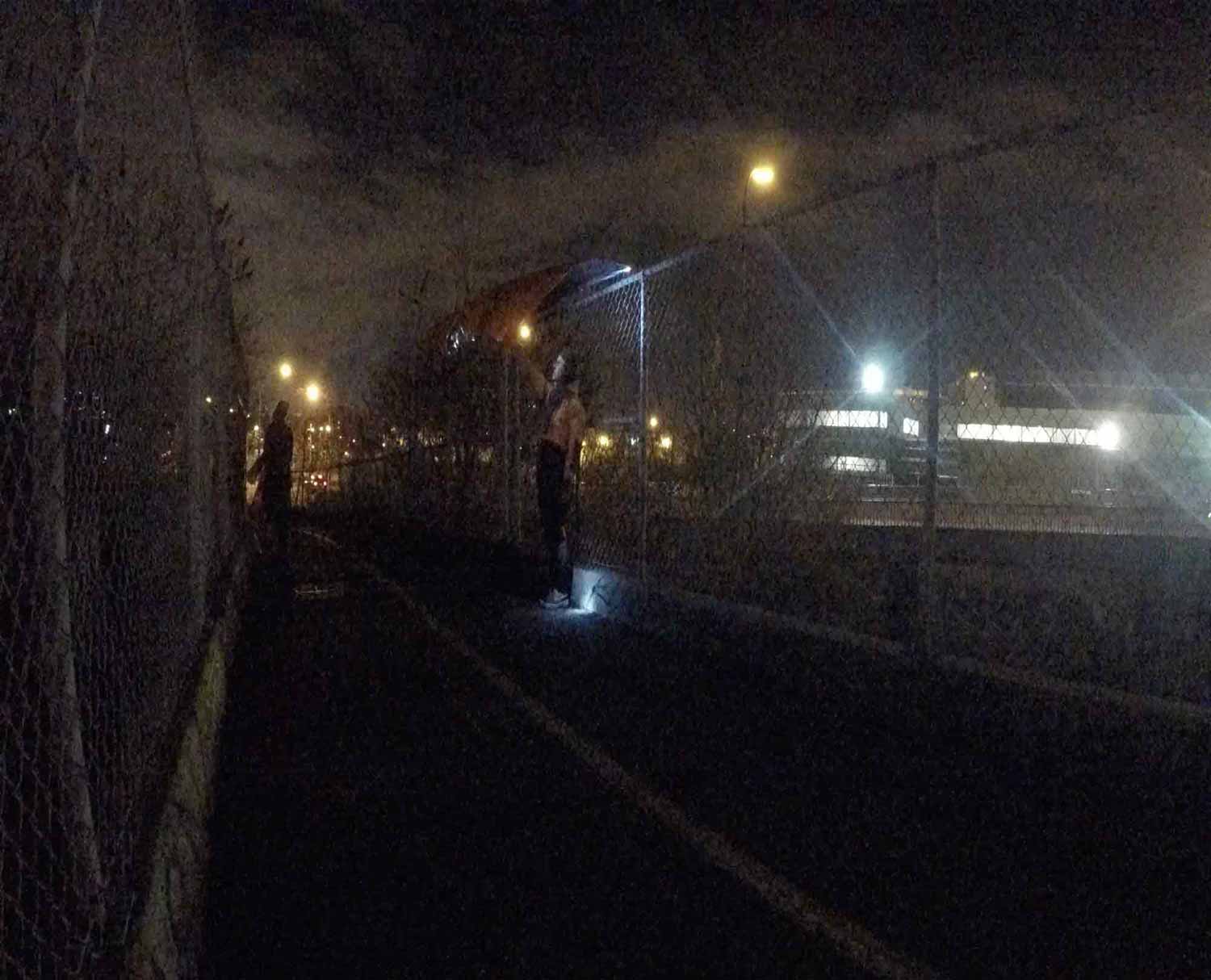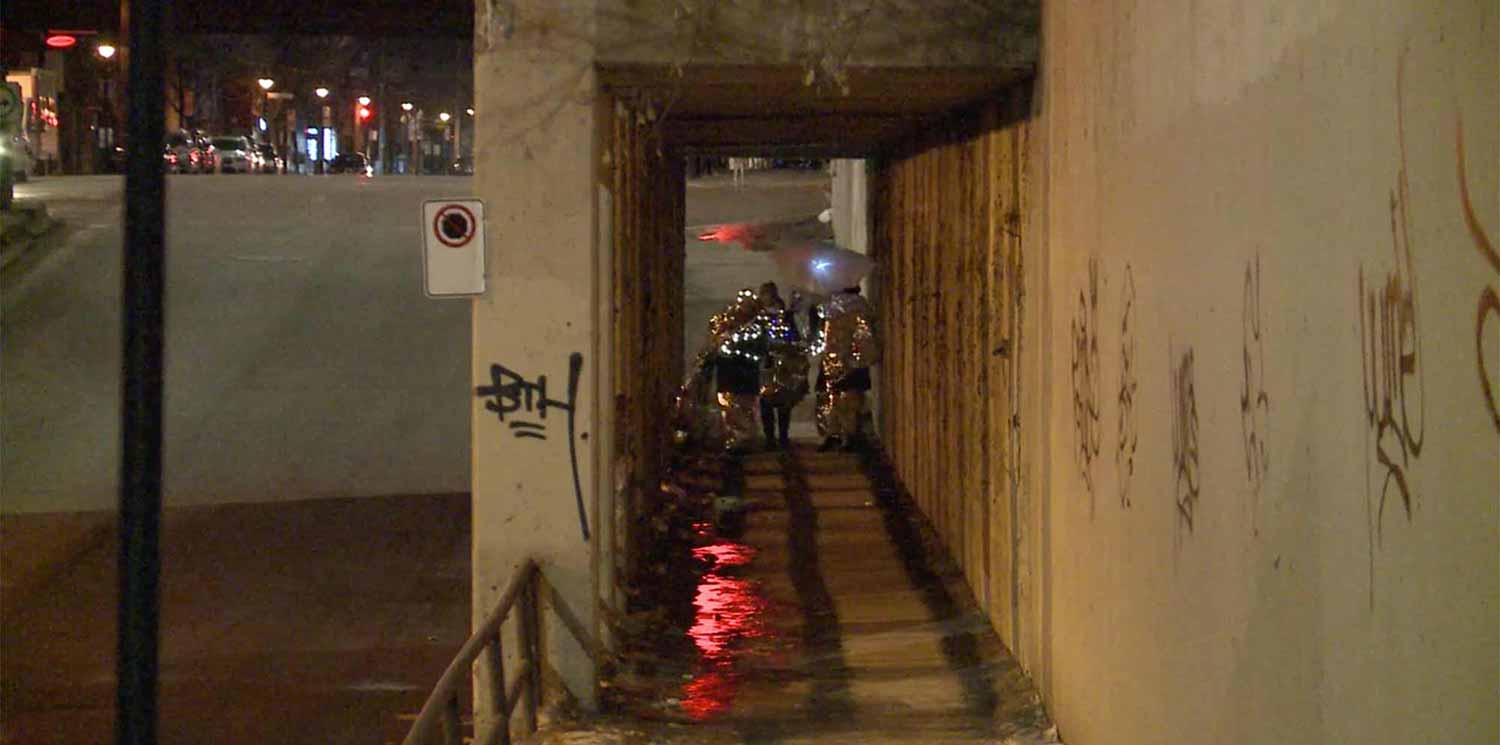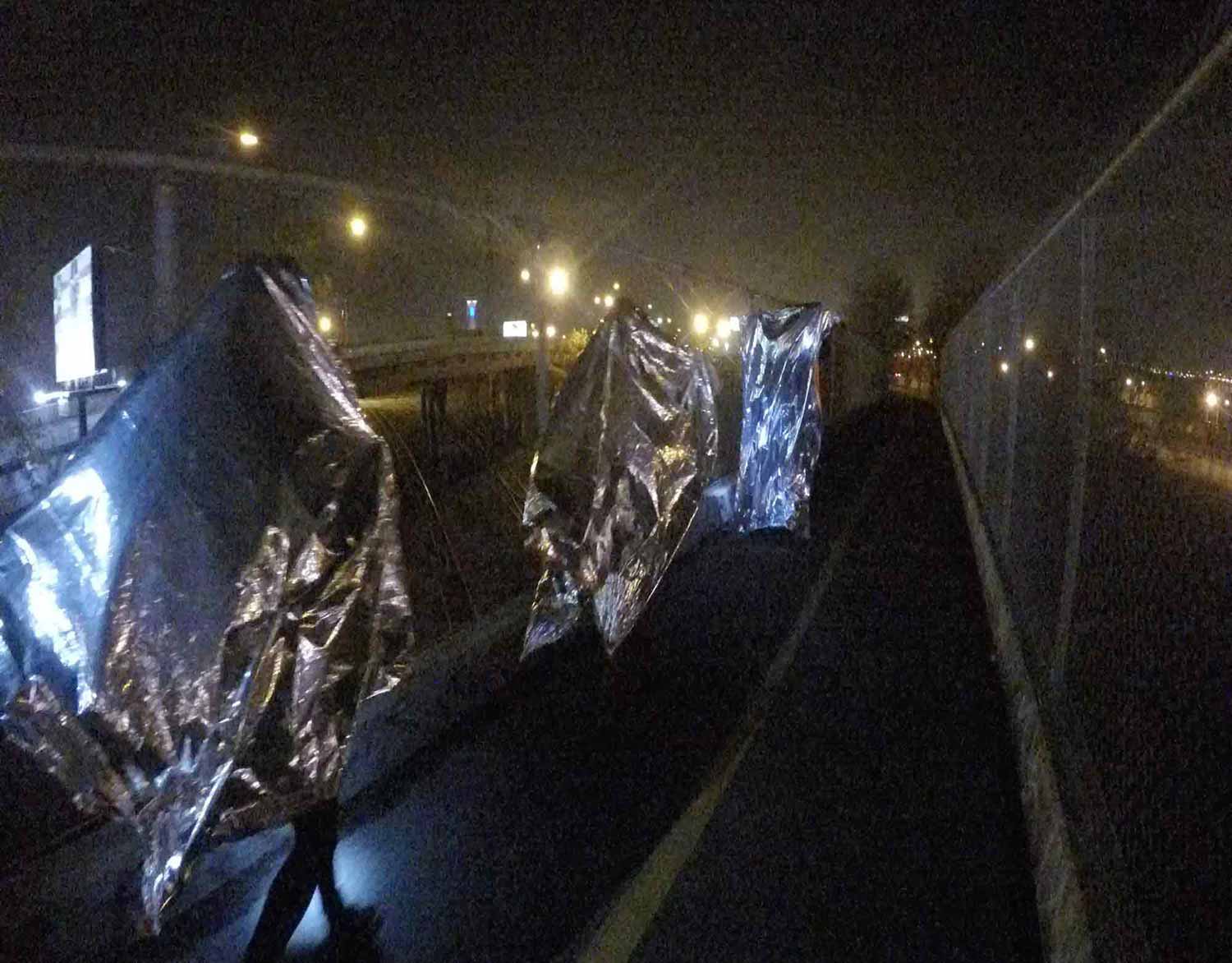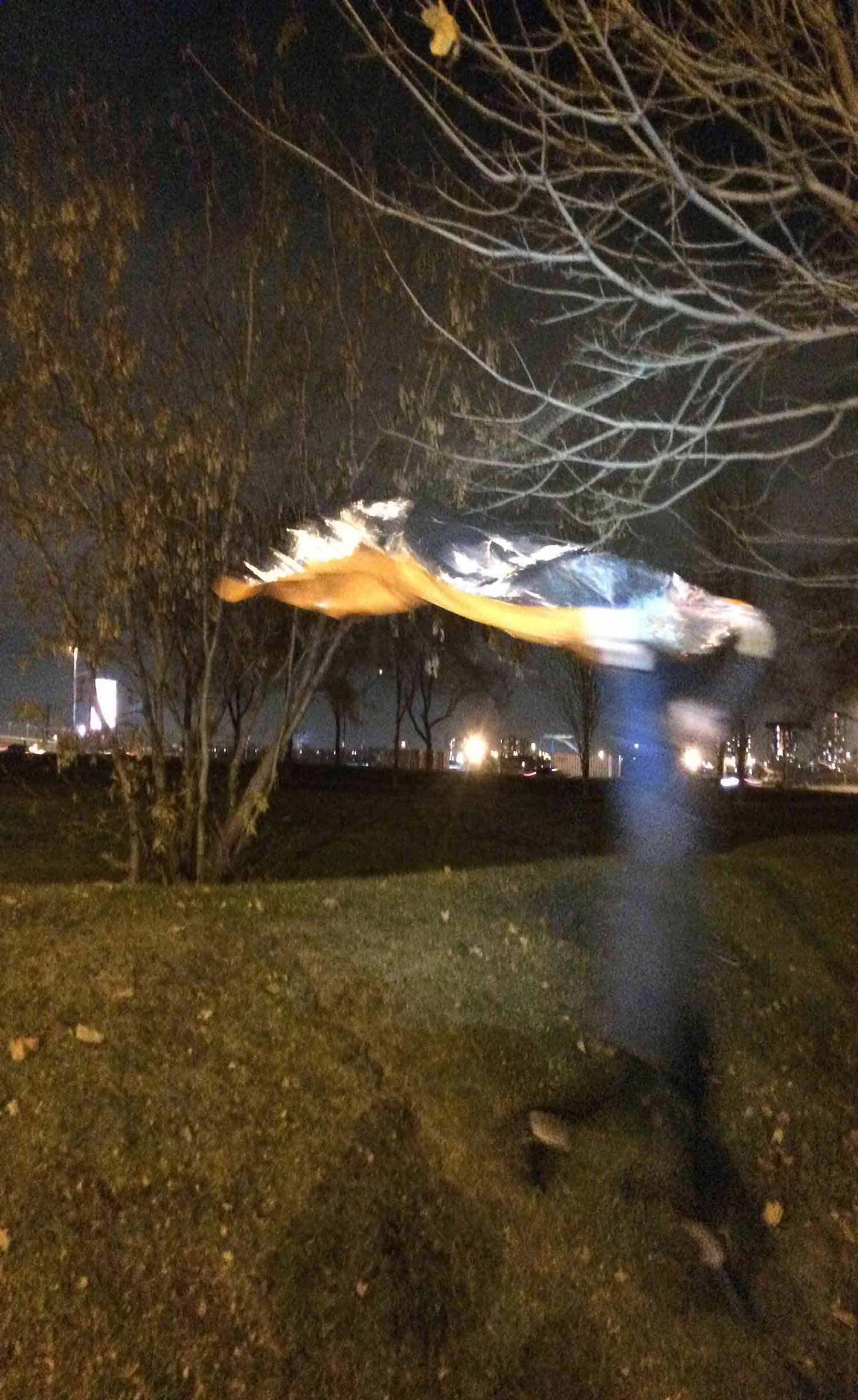- Login
Critical Spatial Practice




What kinds of scenographies of desire emerge when we work through a feminist lens, vis à vis embodied encounters with the built environment at night? With our collective Feminist City Light Capers we embrace darkness creatively alongside a complex series of relations between our gender, the contingency of the night, and risk.
With Desiring the Dark: Feminist Scenographies, the City, and the Night we focus on a series of urban scenographic actions we call Feminist City Light Capers (FCLC). Based in Montréal, the FCLC collaborators perform ephemeral, site-responsive scenographic actions in different locations of the city. What distinguishes our practice from other urban interventions is our intentionality: to collaborate, through creative action, at night. We undertake our actions in urban locations that the members of the FCLC desire to temporarily occupy or pass through, but would not normally do so ‘after hours’. Urban locations have included a bridge, a tunnel, and a mountain in the middle of the city. For us, desiring the dark is a critical spatial practice for enacting speculative gestures whereby the dark of night is transformed from a site of potential, gendered risk, into a site of collective creative agency. In our temporarily transformed spaces of darkness, we joyfully demand our right to heteronormative space.
The FCLC emerged partly in response to questions of how safety is negotiated across gender and experienced in the city, and how the night is a different geography of experience.1 With this project we consider urban lighting as genre, and the politics of visibility as experienced through the tension between the realm of night, temporary, renegade or user-created lighting, and the use of permanent or ‘officially sanctioned’ urban night lighting.
Cynthia Imogen Hammond is Professor of Art History at Concordia University, Montréal, Canada. Hammond is an interdisciplinary artist and historian of the built environment and designed landscapes. She is presently the lead investigator for ‘La Ville Extraordinaire’ (2020–23), which explores the urban knowledge of diverse groups of older citizens. Her feminist research and creation explore the gendered relationships between women and urban and biological landscapes. She has published one book and numerous essays on art, architecture, gender, landscapes, and the city. https://cynthiahammond.org/ https://concordia.academia.edu/CynthiaHammond
Based in Montréal, Caroline Alexander holds a Special Individualized Doctorate from the Faculty of Fine Arts at Concordia University focusing on the collaborative art making process as social activism. Her artistic practice involves discrete, subtle and temporary public interventions, collaborations and performances that are witty, smart and sophistically subversive. Alexander is the co-founder and co-owner of Ludique, a fashion styling collective. Working with individuals and on film and television projects, she believes dressing is, or can be, a daily expression of creativity. Part sculpture, part narrative, part performance, clothing allows one to create and recreate who/how one is or wants to be.
Shauna Janssen is Assistant Professor of Theatre at Concordia University, Montréal, Canada. Shauna is a University Research Chair in Performative Urbanism and directs PULSE, a lab which focuses on site responsive, critical urban, artistic, spatial and material practices that are redressing and engaging with themes of spatial justice and the politics of urban change. Her performance design practice engages with interdisciplinary, feminist and scenographic methods to engage with questions of the right to the city. She has published numerous essays and monographs on site-specific art, public space, performance pedagogy, and performative practices including with the International Journal of Performance & Theatre Design, and PARtake: the Journal of Performance as Research.
As enactors of the FCLC project we take inspiration from recent writings on contemporary performance, spatial and material practices that ask us to consider how the field of scenography has expanded (McKinney and Palmer, 2017), or moves ‘beyond scenography’ (Hann, 2019), in relation to writings on feminist spatial practices (muf 2001; Rendell 2003; Schalk et al 2017).
Hann, Rachel. Beyond Scenography. Routledge, 2019.
Schalk, Mieke et al. eds. Feminist Futures of Spatial Practice. Baunach, Germany: AADR, 2017.
Tillett, Linnea. http://www.tillettlighting.com



































































